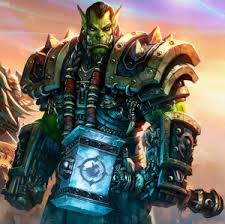
记忆方法
1. slave => slav- => *thlav- => *thrav- => *thrau- => thrall.
2. 这是一种缺乏理据性的根据音变规律和原理做出的一种联想和近义关联。其目的在于使单词更易于理解和记忆。
3. 因此这种联想不是天马行空地乱联想,而是根据音变规律做出的一种比较合理的联想。
4. 谐音“是奴啊,死奴啊,是奴哦,死奴哦”。
2. 这是一种缺乏理据性的根据音变规律和原理做出的一种联想和近义关联。其目的在于使单词更易于理解和记忆。
3. 因此这种联想不是天马行空地乱联想,而是根据音变规律做出的一种比较合理的联想。
4. 谐音“是奴啊,死奴啊,是奴哦,死奴哦”。
中文词源
thrall 奴役,奴仆
来自古英语 thrael,奴仆,来自 Proto-Germanic*thragilaz,跑腿者,来自 PIE*tragh,拉,拖,跑, 词源同 track,tractor.引申词义奴役,役使。
英语词源
- thrall (n.)
- late Old English þræl "bondman, serf, slave," from a Scandinavian source akin to Old Norse þræll "slave, servant," figuratively "wretch, scoundrel," probably from Proto-Germanic *thrakhilaz, literally "runner," from root *threh- "to run" (cognates: Old High German dregil "servant," properly "runner;" Old English þrægan, Gothic þragjan "to run"). Meaning "condition of servitude" is from early 14c.
权威例句
- 1. Anti - thrall leaders agitated the question of thrall for many years.
- 反对奴隶制的领袖们就奴隶制问题进行了多年的激烈争论.
- 2. At the concert, I was held in thrall by the music.
- 在音乐会上, 我被音乐迷住了.
- 3. He treats his wife like a thrall.
- 他把妻子当作奴隶看待.
- 4. He is a thrall to drink.
- 他极贪杯.
- 5. He is ( in ) thrall to his passions.
- 他是感情的奴隶 ( 感情用事 ).
